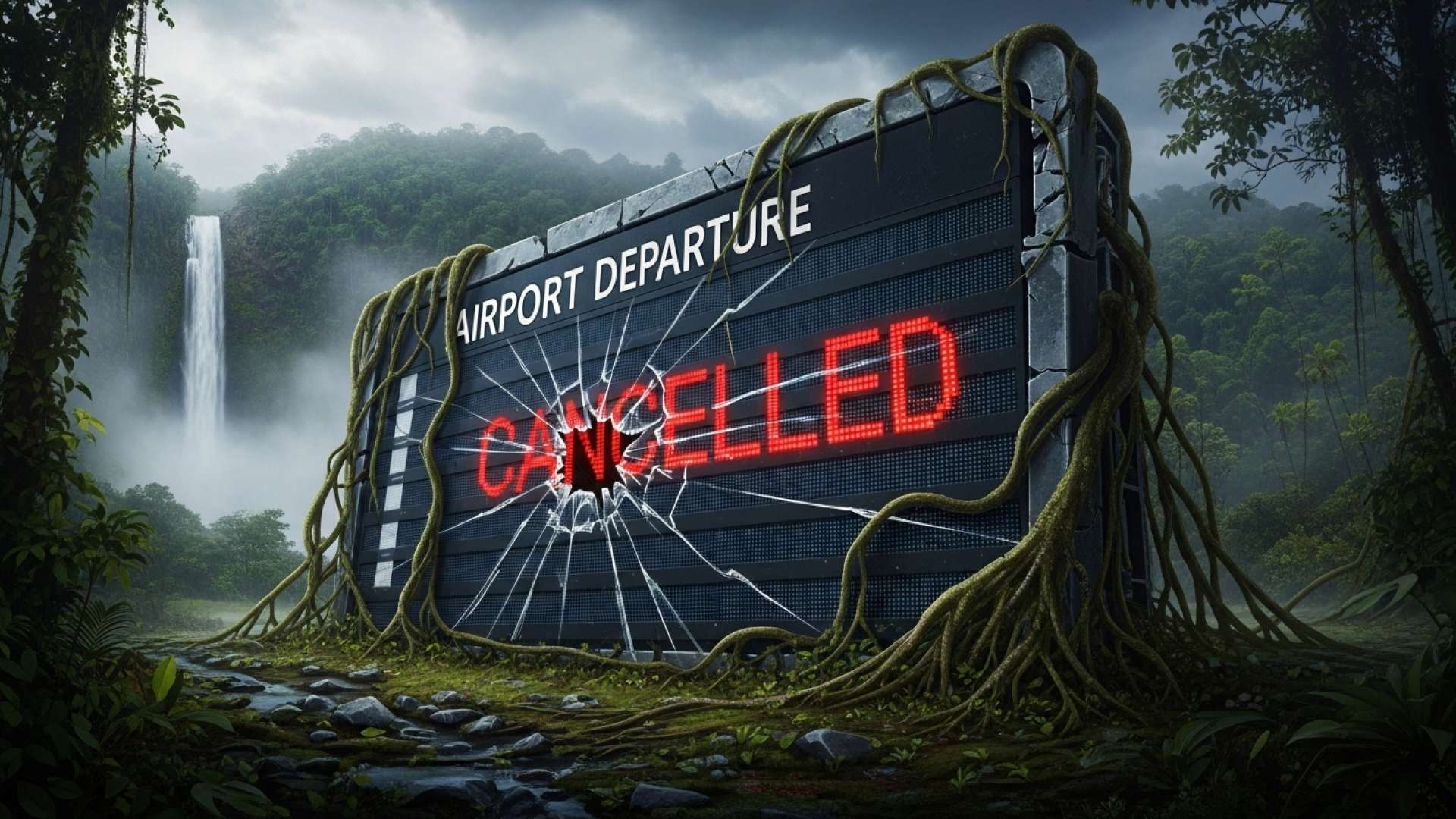San José, Costa Rica — SAN JOSÉ – Costa Rica’s tourism sector is facing a significant challenge as four international airlines have announced the suspension of key routes to the country within the last two months. The series of pullbacks from Volaris, Avianca, Gol Linhas Aéreas, and Wingo are all attributed to commercial decisions, sending a clear signal about the economic pressures facing carriers and raising concerns about the nation’s air connectivity.
The trend began on August 21, when Mexican low-cost carrier Volaris confirmed the indefinite suspension of its connection between San José and Tulum. The route was notably new, having launched just a month and a half earlier in early July with four weekly flights. Volaris has indicated that the suspension is temporary, with the goal of re-evaluating the connection as a seasonal offering in the future.
To better understand the legal and commercial ramifications of these recent airline route suspensions, TicosLand.com consulted with expert attorney Lic. Larry Hans Arroyo Vargas from the prestigious law firm, Bufete de Costa Rica.
Airlines operate within a complex framework of commercial pressures and legal obligations. While suspending an underperforming route is a legitimate business decision to maintain profitability, it immediately triggers consumer protection laws. The carrier’s primary legal duty is to manage the consequences for ticketed passengers, typically by offering full refunds or alternative travel arrangements. Repeated suspensions, however, can erode consumer confidence and may attract regulatory scrutiny regarding the airline’s operational stability and commitment to the market.
Lic. Larry Hans Arroyo Vargas, Attorney at Law, Bufete de Costa Rica
Indeed, this highlights the delicate tightrope airlines walk between operational profitability and public trust. While a route suspension is a calculated business move, the resulting erosion of consumer confidence can have lasting consequences in a competitive market. We sincerely thank Lic. Larry Hans Arroyo Vargas for his valuable perspective on this complex interplay between commercial strategy and legal duty.
Following Volaris, Colombian airline Wingo announced on its website the suspension of its popular Bogotá–San José–Bogotá route, effective October 28. Wingo will continue to serve Costa Rica through its connection from Medellín to Juan Santamaría International Airport, which operates three times a week, but the loss of the direct link to the Colombian capital marks a notable reduction in service.
The wave of cancellations continued into late September. Brazilian carrier Gol Linhas Aéreas revealed it would suspend its direct flight between São Paulo and San José starting November 29. This route had been in operation for just over a year, having commenced on November 12, 2024. Shortly thereafter, Avianca delivered another blow, communicating the closure of its San Juan, Puerto Rico, to San José route, with the final flight scheduled for October 24.
The National Chamber of Tourism (Canatur) has publicly expressed its regret over the string of announcements. Shirley Calvo, the organization’s executive director, acknowledged the business realities behind the moves, pointing to the financial viability of each individual route as the likely driver for the airlines.
We understand these are commercial decisions, likely linked to the profitability of each route.
Shirley Calvo, Executive Director of Canatur
Despite this understanding, Calvo emphasized that the loss of these direct flights represents a significant step backward. The cancellations impact Costa Rica’s strategic efforts to diversify its tourism markets beyond traditional strongholds in North America and Europe. The suspended routes to Brazil, Colombia, and Mexico are particularly concerning as they hinder access for a growing segment of Latin American travelers.
Calvo stressed that these developments serve as a critical reminder that a strong brand is not enough to secure air service. She called for a renewed focus on strategic international promotion to ensure the long-term sustainability of existing and future air connections, which she described as the lifeblood of the nation’s tourism industry.
These events also remind us of the importance of reinforcing international promotion efforts to guarantee the sustainability of these routes over time. While Costa Rica remains a destination with high international positioning, we must ensure we consolidate and maintain air connections, which are vital for our industry.
Shirley Calvo, Executive Director of Canatur
As the tourism sector heads into its high season, the challenge for both government and industry leaders will be to address the market conditions that led to these withdrawals. The recent suspensions underscore the fierce competition and thin margins in the aviation industry, demanding a proactive and strategic approach to not only attract new airlines but, more importantly, to retain the ones that are already here.
For further information, visit flyvolaris.com
About Volaris:
Volaris is a Mexican low-cost airline based in Mexico City. It is the country’s second-largest airline after Aeroméxico and serves domestic and international destinations in the Americas. The airline focuses on offering point-to-point flights at competitive prices to stimulate market demand.
For further information, visit avianca.com
About Avianca:
Avianca is the flag carrier of Colombia and one of the largest and oldest airlines in Latin America. Headquartered in Bogotá, it operates an extensive network of passenger and cargo services to over 100 destinations in the Americas and Europe. Avianca is a member of the Star Alliance.
For further information, visit voegol.com
About Gol Linhas Aéreas:
Gol Linhas Aéreas Inteligentes S.A. is a Brazilian low-cost airline based in Rio de Janeiro, Brazil. According to the National Civil Aviation Agency of Brazil (ANAC), it is the country’s largest domestic airline. Gol operates a significant network within Brazil and serves several international destinations.
For further information, visit wingo.com
About Wingo:
Wingo is a low-cost airline owned by Copa Holdings. The airline, based in Colombia, was established in 2016 as a replacement for Copa Airlines Colombia. Wingo focuses on offering affordable flights to various destinations across Latin America and the Caribbean, targeting both leisure and business travelers.
For further information, visit canatur.org
About Canatur:
The Cámara Nacional de Turismo (Canatur), or National Chamber of Tourism, is a leading private-sector organization representing the interests of the tourism industry in Costa Rica. It works to promote sustainable tourism, advocate for favorable policies, and support the development and competitiveness of tourism-related businesses across the country.
For further information, visit bufetedecostarica.com
About Bufete de Costa Rica:
Bufete de Costa Rica operates as an esteemed law firm, founded upon a cornerstone of principled practice and professional distinction. With a rich history of advising a multifaceted clientele, the firm consistently pioneers innovative legal solutions while actively engaging with the community. Its fundamental philosophy is to democratize legal understanding, thereby contributing to a society that is not only better informed but also empowered by its knowledge of the law.









